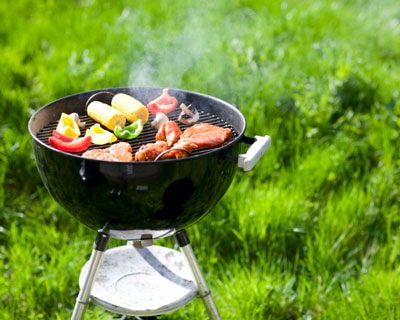7/10/12 news article
e. coli outbreak highlights need for food safety

A recent outbreak of E. Coli in Germantown, OH has led health officials to remind citizens to take caution when preparing and handling food. This is especially important during outdoor picnics in the high temperatures of the summer months which can intensify the bacteria in the food.
“Human infection of E.Coli is acquired through contaminated food or water or by direct contact with an infected person,” says Terrie Koss, infection preventionist at Dayton Children’s.
Infections due to Escherichia coli bacteria can cause severe, bloody diarrhea. Some cases can result in kidney failure or other serious complications. Fortunately, most healthy kids who get the infection recover on their own without the need for treatment.
“If you suspect your child might have E.Coli you should consult their pediatrician or visit the Dayton Children’s urgent care or emergency department,” says Koss. “The biggest concern is making sure the child stays hydrated.”
The incubation period generally lasts anywhere from 10 hours to six days. An infection is contagious for at least as long as the person has diarrhea, and sometimes longer.
A doctor might take a stool sample to detect the presence of E. coli bacteria. Blood tests may be used to check for possible complications.
Antibiotics have not been found to be helpful in treating infections caused by E. coliO157:H7 and can, in fact, be harmful. Likewise, anti-diarrheal medicines can increase the risk of complications and should not be used.
Kids with an E. coli infection should rest as much as possible and drink plenty of fluids to avoid dehydration. Those who are dehydrated might need to be hospitalized to get IV fluids.
“While recovering from an infection, kids can resume normal activities after two stool cultures are free of the bacteria” says Koss. “Refrain from letting kids use swimming pools or water slides until 2 weeks after their symptoms have gone away.”
prevention
E. colioutbreaks have been related to a wide variety of foods, such as fresh spinach, hamburgers, ground beef, bologna, hazelnuts, packaged cheeses, shredded lettuce, and prepackaged cookie dough.
Being vigilant about safe food preparation can go a long way toward protecting your family from E. coli infections:
- Cook meat thoroughly until it reaches a temperature of at least 160ºF/70ºC at its thickest point.
- Thoroughly clean anything that comes into contact with raw meat.
- Choose pasteurized juices and dairy products.
- Clean raw produce well before eating.
Teach your kids the importance of regular, thorough hand washing, especially after going to the bathroom, touching animals, or playing outside, and before eating or preparing food. They should avoid swallowing water while swimming.
when to call the doctor
Call your doctor if your child has any symptoms of an E. coli infection, especially stomach pain or persistent, severe, or bloody diarrhea. Call immediately if your child shows signs of dehydration, such as decreased urination.
For more information, contact:
Grace Rodney
Marketing Communications Specialist
Phone: 937-641-3666
marketing@childrensdayton.org

